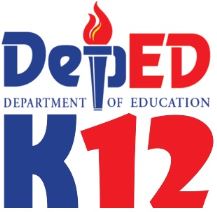
ZAMBOANGA CITY (Mindanao Examiner / Aug. 2, 2012) – The Department of Education continues to monitor the implementation of the so-called “K+12” program in all government schools across the Philippines.
It said theprogram covers kindergarten and 12 years of basic education – 6 years of primary education, 4 years of junior high school, and 2 years of senior high school – to provide sufficient time for mastery of concepts and skills, develop lifelong learners, and prepare graduates for tertiary education, middle-level skills development, employment, and entrepreneurship.
The implementation of the program, according to the Department of Education, will be in phases which started in June. Grade 1 entrants for 2012–2013 will be the first batch to fully undergo the K+12, and incoming first-year high school students (or grade 7) will be the first to undergo the junior high school curriculum.
And to prepare teachers for the new curriculum, a nationwide summer training program for about 140,000 grades 1 and 7 public school teachers was held in May. The Department of Education said it is also working with various private school associations to cover teachers in private schools.
MORE TRAINING NEEDED
But government teachers in Zamboanga City said they need more training for the new academic program.
Pedro Melchor Natividad, the Assistant Schools Division Superintendent, said the implementation of K+12 program in Zamboanga City is not yet stable.
“Teachers and school staffs are complaining that the trainings they had this summer are insufficient to prepare for the new academic program. The implementation of this program for this school year is on Grade 1 and Grade 7 only,” Natividad told the Mindanao Examiner.
“At the moment, we can’t measure the success yet of this program because we are just starting and we are still getting things in place,” he added.
The Department of Education said the adoption of the program is in response to the need to improve the competitiveness of our country’s graduates as the 10-year basic education cycle is seen as inadequate for work and higher education.
CONCERNS
However, Natividad said the program has its various concerns such as in grade 1 – its teaching and learning guides are not yet readily available and he admitted that they are still in the process of procuring and producing the materials. He said teachers will just have to download softcopies from the website of the Department of Education.
He said one major change to the academic cycle is the institutionalization of the kindergarten. “Parents should enrol their children into kindergarten 1 and 2 before they can be admitted to Grade 1, unlike in the past wherein parents can just choose whether to enrol their children in kindergarten or not,” Natividad said.
Natividad also stressed various concerns about the program and one of these is that they lack teachers who are trained and knowledgeable on K+12. Another concern, he said, is the new grading system which is not yet finalized, and with the upcoming examinations, teachers from different villages are baffled on how they are going to deal with this dilemma.
He said schools will have to use a new grading system which composes letters (acronym) with corresponding meanings, for instance, B for beginning and D for developing, or A for advance and P for proficient. Although there are still numerical computations will still be used, these new grading system will be followed. High school will also use “Spiral Approach” of teaching.
LOCAL DIALECTS
The kindergarten and lower grade level are supposed to be using mother tongue language and Zamboanga schools are supposed to use four dialects – Tausug or Yakan, Visaya, Tagalog and Chavacano. But on the first day of class, students were segregated according to their native dialect, but not all schools have enough number of teachers who are capable of speaking the mother tongue on that specific place.
In villages of Muti and Marangan, the locals speak the Yakan dialect, and as a result, teachers will find it hard to conduct lessons among students since there are only a few numbers of people who are fluent in speaking Yakan.
And these dialects will not only be used as a medium of instruction, in fact, it will be included in the academic subject too and so the Department of Education is highly requiring training for teachers in this new education program.
The perceived benefits of the K+12 program include placing the Philippine education system at par with international standards, following the Washington Accord and the Bologna Accord; and contributing to the development of a better educated society capable of pursuing productive employment, entrepreneurship, or higher education disciplines, according to the Department of Education. (Carlissa Horcerada and Marvin Saradat)
